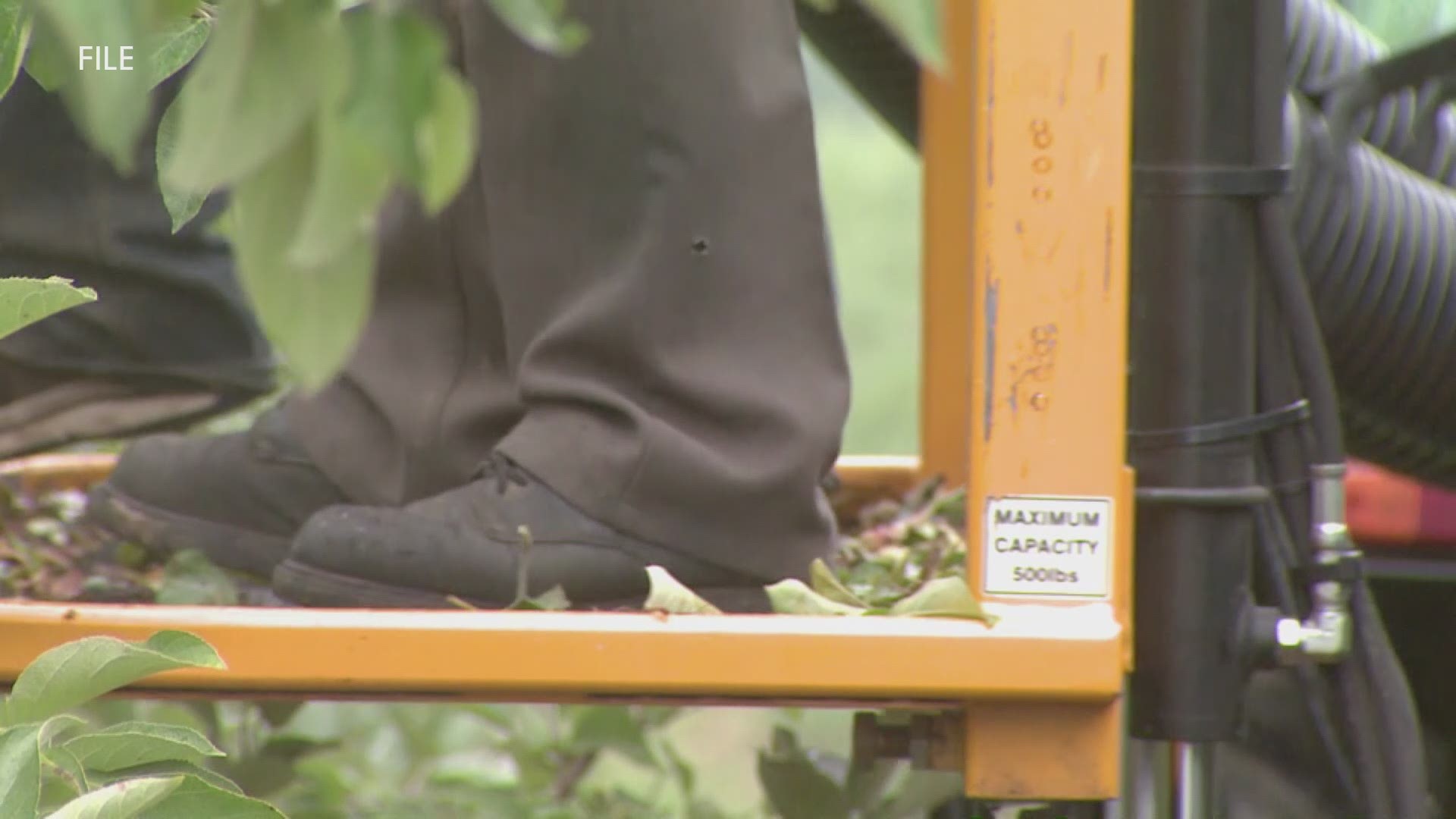Starting March 1, tens of thousands of Michigan food and agriculture workers will become eligible for the COVID-19 vaccine.
"We're very pleased with this development and we think it's the right thing to do both for farmworkers, but for the overall health and well being of Michigan's food supply chain," said Diana Marin, supervising attorney with Michigan Immigrant Rights Center.
MIRC represents hundreds of food and agriculture workers, and in January, the organization called on the state to prioritize the industry, which has been hard hit by the virus.
Now, Marin says the focus must be on making the vaccine accessible to this population, including making clear it's available for free to anyone regardless of immigration status.
Previously, Michigan workers in food processing and agricultural settings, which accounts for about 79,000 people, would not have been eligible until May based on the most recent timeline.
"Even when there was a stay at home order, they were always there at the packing sheds, in the fields picking our fruits and vegetables and making sure that we continued to have an adequate food supply," Marin said.
From living in congregate settings in migrant camps or not being able to socially distance while working, Marin says, the risk of exposure is high.
As of Feb. 11, there were over 20 ongoing clusters/outbreaks linked to food processing and agriculture sites, according to Michigan Department of Health and Human Services data.
A spokesperson for the state health department said "efforts to ensure a healthy workforce are crucial to food supply chain."
"These groups have been connected with outbreaks at meat packing plants, dairies, greenhouses, and farms. In the spring and summer of 2020, there were large ongoing outbreaks that can spread between locations and to the communities where these workers live. There was documented spread from work to group housing or apartment complexes," said Lynn Sutfin, public information officer for MDHHS.
Marin says in order to provide access to the vaccine it will require the help of community partners, but also, planning by local health departments.
"We need our county health departments, community health centers and migrant health centers to start translating materials and making plans for how they will reach these folks," Marin said.
In August, MDHHS ordered mandatory COVID-19 testing of agricultural workers. Marin said the state should look to use infrastructure established during that process to support vaccine distribution.
"We hope to see materials, translated in various languages—not just Spanish, trained bilingual workers, mobile clinics and more importantly inclusive ID requirements and messaging that is clear that farmworkers can access the vaccine for free, regardless of immigration status," Marin said.
Sutfin said vaccination strategies for seasonal workers is in the works with local health departments, as well as, Michigan's Department of Agriculture & Rural Development.
"I think there is a racial justice lens to this decision that can't be overlooked and farmworkers have traditionally been excluded from so many labor laws and protections, they still have high incidence of pesticide exposure, risk of workplace injuries," Marin said. "So, it's really important to send this message to farmworkers that the state cares about them and that they're going to prioritize the limited supply of vaccines available to make sure that this community is protected."
The vaccine was first rolled out in mid-December to healthcare workers and long term care facilities, and has since opened up to people ages 65 and older and some essential workers, including law enforcement, school and childcare staff and corrections staff.
The state also announced Monday that mortuary workers are now eligible, in line with CDC guidelines. Additionally, the state health department said over 40 federally qualified health centers across the state will soon begin receiving vaccine allotments to help vaccinate underserved communities. Some health centers will be able to vaccinate people ages 60 years and older, as well.
Demand continues to outweigh supply of the vaccine. Health officials have said the arrival of new vaccines can help offset the shortage.
As of Tuesday, 1,657,215 doses have been administered statewide and nearly 525,000 people have received both doses.
►Make it easy to keep up to date with more stories like this. Download the 13 ON YOUR SIDE app now.
Have a news tip? Email news@13onyourside.com, visit our Facebook page or Twitter. Subscribe to our YouTube channel.

